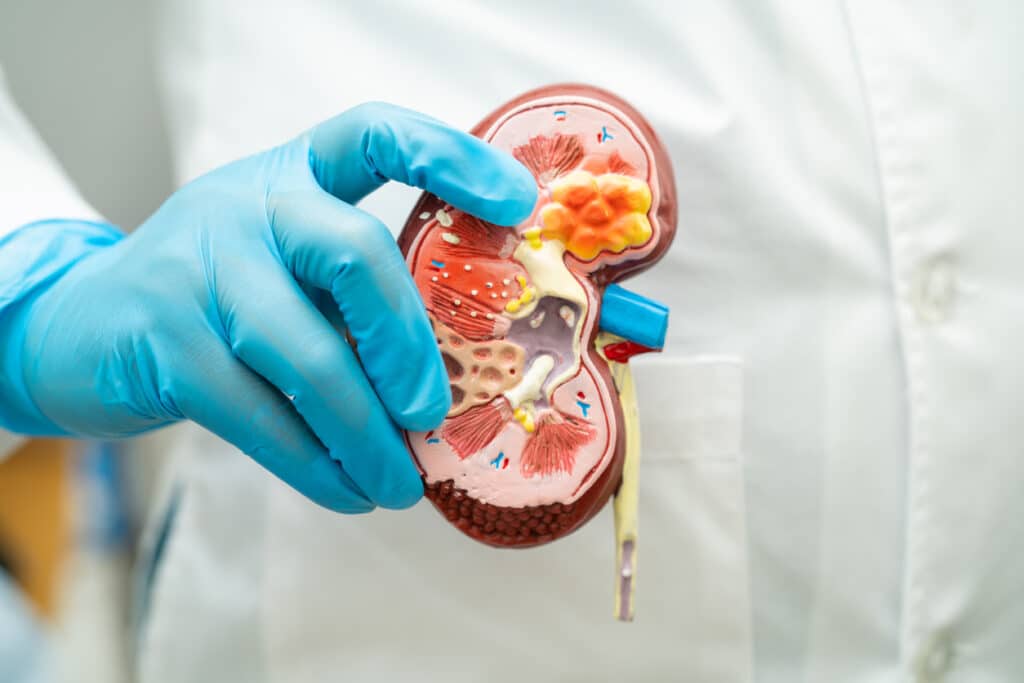When you think of protecting your hearing, earplugs and lowered volumes are probably the first things to mind. This is because the impact of aging and exposure to loud noises on hearing health is widely recognized. One less discussed but essential aspect of caring for your hearing health is located in your kidneys. By focusing on promoting kidney health, you can take a proactive step toward safeguarding your hearing health.
The Crucial Role of Kidneys

Kidneys, the two bean-shaped organs on either side of the spine beneath the ribcage, are vital for overall health. They filter the blood, remove waste and regulate the balance of fluids in the body by producing urine that is then expelled to the bladder. When the kidneys are damaged over time, their efficiency in performing these crucial functions declines, leading to the accumulation of waste and fluids. This can result in additional organ damage, elevated blood pressure, stroke risks and even premature death.
How Kidney Disease Affects Hearing
Approximately 14% of adults in the U.S. suffer from chronic kidney disease, equating to about one in every seven individuals. Kidney disease prevents the kidneys from effectively filtering waste and excess fluids, allowing these harmful substances to circulate throughout the body and damage various tissues and organs, including those in the auditory system. This makes the ears more susceptible to damage and can lead to hearing loss.
Strategies for Prevention and Management
Caring for our kidney health is essential in stopping future kidney disease from affecting hearing. A few Centers for Disease Control tips for protecting your kidney health include:
- Get tested. If you fall into a high-risk category, such as those with heart disease or a family history of kidney issues, get regular tests to help diagnose problems early on.
- Stay active. Regular exercise helps maintain healthy blood sugar levels and minimize your risk of kidney disease. Try adding a walk-through Katy Heritage Park to your daily routine for a little extra exercise.
- Keep an eye on health conditions. Conditions like hypertension and diabetes can increase your risk for kidney disease. Schedule regular check-ups with your provider to help ensure these conditions do not lead to kidney disease.
Though it may not always be possible to prevent kidney disease entirely, early detection and intervention can significantly reduce its impact, potentially through medications, dialysis or kidney transplant options. In cases where kidney disease leads to hearing loss, hearing aids can significantly alleviate its effects.
For those experiencing hearing issues due to kidney disease or other causes, seeking professional assessment and treatment is key. Comprehensive hearing evaluations and tailored treatment plans can significantly improve your quality of life. Contact Today’s Hearing for a consultation to explore your options and take a proactive step toward protecting your hearing health.